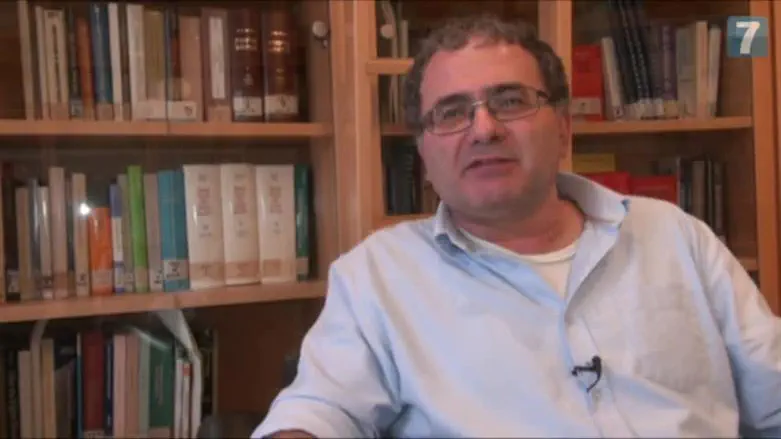
A survey of the headlines of the past few weeks gives rise to the feeling that something is rotten in the State of Israel, and in every part of Israeli society. Take the Pegasus spyware program allegedly used against people not suspected of criminal activity ; the Ettie Kreif story of someone who cleared the path to her judicial appointment by nefarious means; the serious suspicions that brought about the creation of a committee to investigate the submarine affair; and you can keep going on from there. My late wife Bambi used to say that Israeli society is healthy, but its leadership is ill. Sadly, that is not quite true anymore. The way many Israelis acted during this corona pandemic – the tens of thousands who sent sick children to school without any consideration for their friends, the many others who ungratefully rejected the gift of vaccinations –prove that the man in the street is not very different from his leaders.
What is the cause of this rot, and of the many additional indications of its spread? What is the common denominator? It is not hard to find. The phenomena we witness today are all examples of casting aside ethical norms for the sake of personal interests, self-advancement and individual success. This can even be seen when looking into the hotly debated issue of changing national high school matriculation examinations: the subjects that will continue to have national examinations are the ones with economic and professional applications, while the subjects to be taken off the required list are the ones having to do with moral issues and the socio-national narrative.
There are many criminal examples of this rot, but behind each, whether or not it is criminal, hides a plague of unacceptable norms, a pandemic whose contagion coefficient is constantly rising. It has infected our politicians who do not hesitate to use the most inflammatory words only in order to achieve rating and attention; our media, which grants these provocative politicians maximum attention, only to wring their hands afterwards about the polarization in our society; the committee for appointing judges that does not necessarily choose the best person, but instead picks the one who can be agreed upon in a political deal between opposing camps; the IDF officers in technological units who are unwilling to go down to the Negev to work or to serve in the army at all unless they are promised much better conditions than those existing in parallel civilian positions, and the army chiefs who give in (or are forced to give in) to them and grant them enormous benefits when there are so many Israelis who can barely make it through the month on their paltry salaries.
Worst, the spread of this rot in the ranks of law enforcement is painfully obvious – in those who did not want to get involved in quelling riots in Lod or the Negev where they would have to face hostile populations, thereby causig significant parts of the country to enter a state of extreme lawlessness – and let us not forget the prison service commanders who sent women jailers to serve as sexual prey for security prisoners in order to keep things quiet.
The narrative of individual rights, born after WWII due to antagonistic reactions to the destructive ideologies that caused it, swung society's pendulum to the opposite extreme, one where a person's rights and his own success are more important than any responsibility to society and its mores. This is the case throughout the West, but that is small comfort because this shared problem has only brought the entire West, which cannot stand up to the implacable bloc whose members are Russia, China, and the Moslem world – to where it lacks the inner strength to protect its own survival. In Israel the problem is especially acute, because while the entire West is facing an existential challenge, Israel is facing an even bigger one.
The only room for optimism is that if all the problems have a common denominator, that can be the Archimedean point that brings about salvation. If Israeli society wants to survive, it has to discard the language of rights and success in favor of a conversation about responsibility; a conversation that will include a fitting place for individual rights without the perspective that says "I deserve it" but will emphasize all of society's responsibility and each member's responsibility to care about respect for everyone and his rights.
Next week we will mark 30 days since the passing of renowned Jewish Philosophy Professor Eliezer Schweid, who warned us about exactly what is happening now, with an educational conference at Jerusalem's Begin Center to talk about jumpstarting a recovery process. But an educational endeavor is not enough unless it is accompanied by unyielding public and judicial action against those who breach both ethical and legal norms.
I remember giving the identical speech at my sons' and daughter's bar and bat mitzvahs. I said that the main difference between the concept of adulthood in today's Western culture and that of Judaism is that in the current Western culture growing up means getting rights: the right to vote, the right to bear arms, the right to drive, the right to have intimate relations with others and so on; but in Jewish culture, reaching adulthood means being given responsibilities and obligations. It is time to choose the Jewish way.
Posted with permission from Makor Rishon Hebrew Newspaper. Translated by Rochel Sylvetsky.
Yair Sheleg is a researcher, journalist, author, and publicist who is currently a member of the editorial board of Makor Rishon and the author of a weekly column. In 2000, Sheleg published his book The New Religious Jews: Recent Developments among Observant Jews in Israel (Keter Publishing), which documents major processes in all facets of religious society..